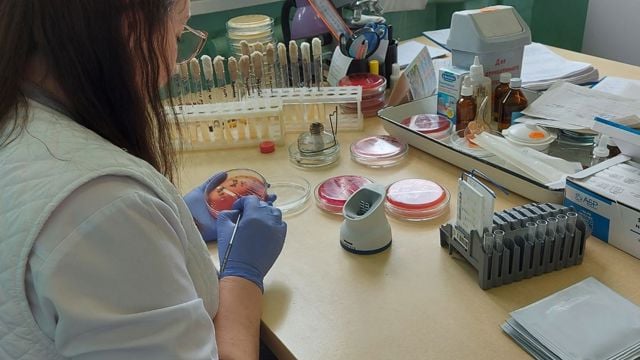The Impact of War and Armed Conflict on Antimicrobial Resistance in Ukraine and Beyond

Photo credit: Arkadii Vodianyk, AMR Technical Officer, WHO Country Office in Ukraine. Infection prevention and control monitoring visit to a healthcare facility in Ukraine.
Reports of antimicrobial-resistant infections among people with war-related injuries date back to World War II and have become increasingly common in more recent conflicts. Today, the situation in Ukraine is raising particular concern, with high levels of carbapenemase-producing Pseudomonas aeruginosa, Acinetobacter baumannii, and Klebsiella pneumoniae identified in war wounds.
Join us for a seminar featuring the Public Health Center of Ukraine, Norwegian Institute of Public Health and Médecins Sans Frontières (MSF) where participants will explore how war affects infection dynamics, antibiotic use, and resistance patterns, highlighting the role of public health institutions and humanitarian agencies in strengthening infection prevention and control and improving access to diagnostics and surveillance in these extremely challenging settings. The event will also discuss spillover effects, including in Norway.
We look forward to your participation.
🔗 Click here to register for the event
Program:
| 12.00 | Seminar opened by the Head of Section for Global Health, Norad, Torgeir Vasaasen |
| 12.10 | Overview of AMR globally with a focus on humanitarian settings by Øyunn Holen, Medecins sans Frontières (MSF) |
| 12.30 | The public health situation in Ukraine with a specific focus on AMR by Olga Gvozdetska, Deputy Director General at the Public Health Center of the Ministry of Health in Ukraine (PHCU) |
| 12.50 | Summary and reflections from the Norwegian Institute of Public Health (NIPH) by Miriam Sare and Elina Dale |
| 13.00 | Open discussion with the audience |